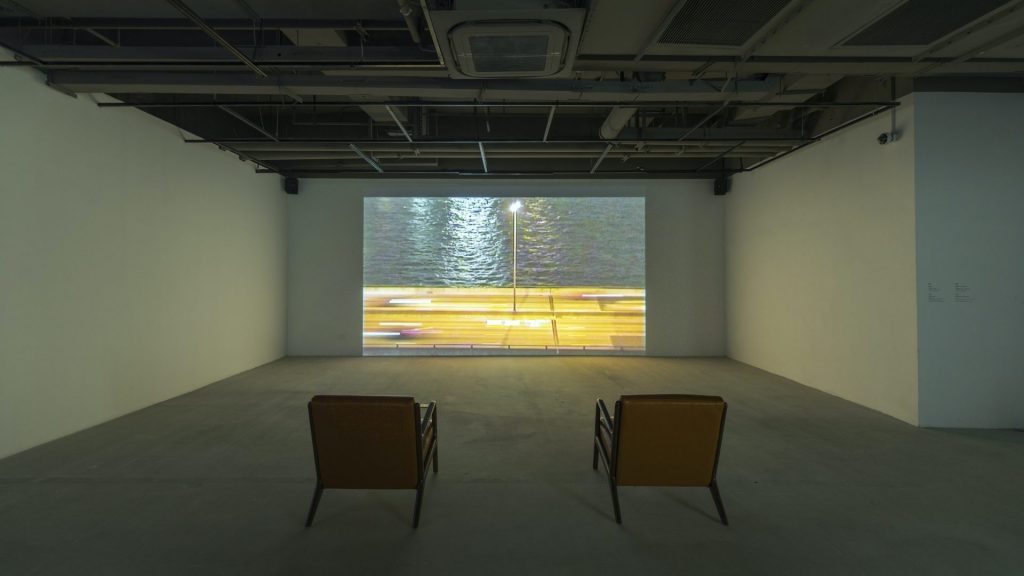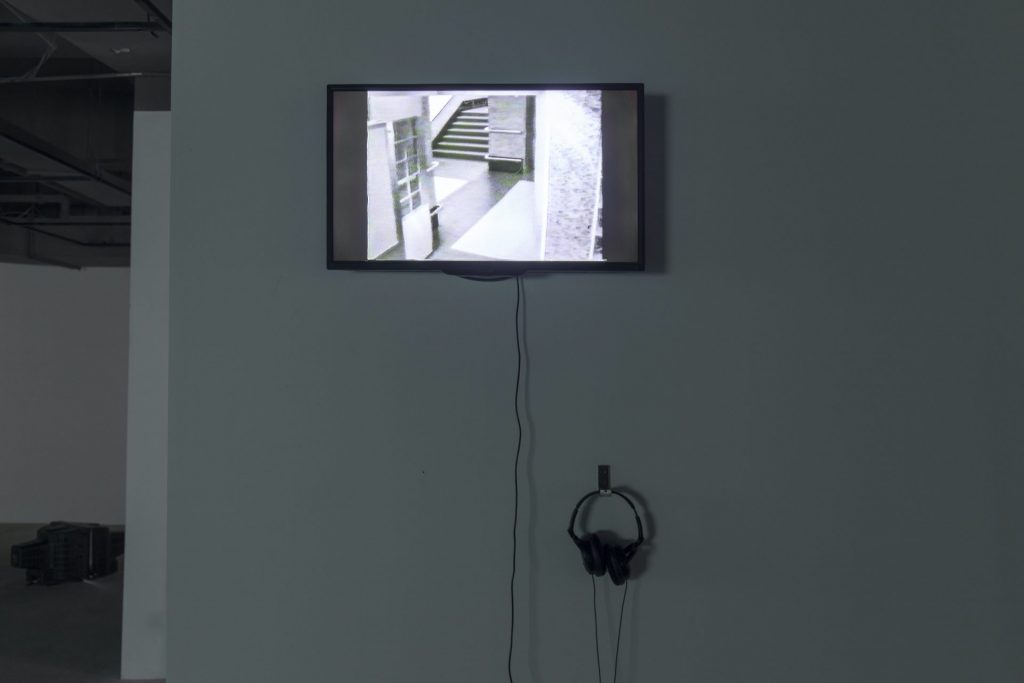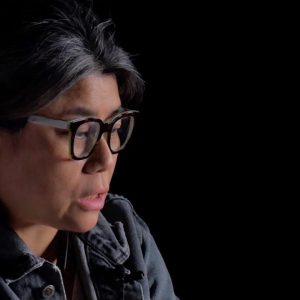Recycling Cinema (Viewing Room), 2000
single-channel video installation

Ellen Pau, Recycling Cinema (Viewing Room), 2000. Installation view, OCAT Shanghai, 2020.
Image courtesy of OCAT Shanghai.
A haunting allegory of reality, metaphysics and cinema, the work transcends the sociological, theoretical or formal conventions of cinematic practice with specific challenges to the unidirectional participation of viewing and linearity. The work plays with the constructions of narrative and the act of viewing.
Operation Theatre, 1995
single-channel video

Ellen Pau, Operation Theatre, 1995. Installation view, OCAT Shanghai, 2020.
Image courtesy of OCAT Shanghai.
A surveillance camera is set over the corridor in a hospital. The surgery rooms, wards, and waiting rooms of various departments, join in a real-time performance of its own.
Ellen Pau’s work is preoccupied with the everyday, focusing on present and accessible real-life phenomena to extract the pulse and tone of our contemporary human condition. In keeping with the transnational character of the video medium, the two works in this exhibition Operation Theatre (1995) and Recycling Cinema (Viewing Room) (2000) could have been recorded in any city of the world. The backdrop of modern architecture, cityscape, bridges and cars are common globally while the Asian ethnicity of the figures in Operation Theatre could also be found in any number of locations in the East and West. Each work seeks out an everyday concrete experience such as contemplating a hospital and the people moving through it, or pondering traffic flows and the transit of drivers and passengers. Drawing attention to a distilled experience of mainstream cultural concepts, in this case theatre and cinema, the two works subvert the expectation of theatrical and cinematic conventions. This is achieved through the exploration of medium of video that enabled the artist to access, record, consider, deconstruct and reinstate these everyday situations. In Operation Theatre, a single camera point-of-view CCTV footage capturing people moving through a busy hospital corridor is the source material for the work. The CCTV monitoring, commonplace in public buildings globally, observes unscripted public interactions objectively recording any change in an unchanging setting. Recycling Cinema uses the horizontal pan of the video camera to track a vehicle crossing a bridge before the camera locks onto the next vehicle entering the frame from the opposing side, consequently tracking serial anonymous crossings. The rule emerges and structure is mechanically followed. Two arm chairs in front of the projection offer a committed position for the viewer as part of the installation and what we could imagine as the roost from where the video was originally filmed. (Text/ Kim Machan)

Image courtesy of the artist and Edouard Malingue Gallery. Photo by Martin Cheung
- Ellen Pau
- 1961, Hong Kong, China
Born in Hong Kong in 1961, Ellen Pau is a key figure in Hong Kong’s art scene. She raises our awareness of our own physical presence and ignites a contemplation of what it means to be, to exist, here, now, and beyond that, the space each of us occupy. Born in Hong Kong and a graduate from Hong Kong Polytechnic University with a diploma in Diagnostic Radiography in 1985 and received an MA in Visual Culture Studies from the Chinese University of Hong Kong in 2008. Pau has worked as a radiographer in the public hospital in Hong Kong ever since. Pau was plunged into the Hong Kong art scene by her intense interest in video art, new media art, as well as other art forms such as music, poems and performances. Beyond artistic creation, Pau has also been a leader in the promotion, curation and education of art and culture in Hong Kong through founding several important initiatives such as Videotage, the Microwave International New Media Arts Festival and Wikitopia Mini Festival. In 2014, Pau was appointed by the Hong Kong Arts Development Council as a representative of the Art Form Group in Film and Media Arts until end of 2019, and in the same year, she also served on the interim acquisition committee of M+ in West Kowloon Cultural District till present.
Pau is a seminal figure in the Hong Kong art scene, weaving a practice that engages as well as pushes the boundaries of technology, while reflecting on society. Moreover, Pau has been a key contributor to society, through her medical activity as well as initiation and leading of cultural activities. As such, through multiple avenues and outlets, Pau prompts an exploration of the self and the times we are living in, ever shifting and evolving.

